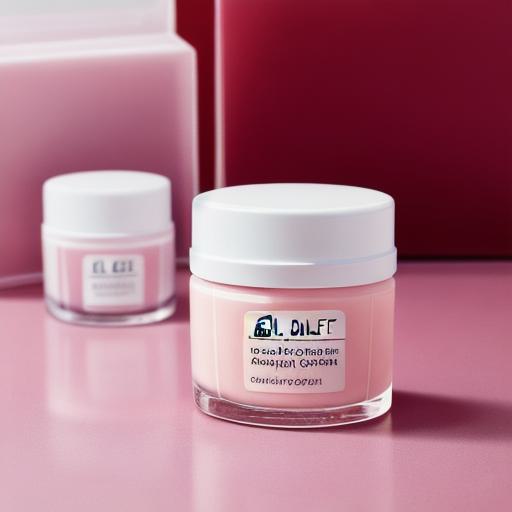Marketing is a crucial aspect of any business, and with the right tools, businesses can effectively promote their products or services to their target audience. In this guide, we will explore some of the main marketing tools used by businesses to promote their products or services. We will also discuss how SEO can be used to optimize your article for search engines and attract traffic.
1. Social Media Marketing Tools
Social media is one of the most effective ways for businesses to reach out to their target audience. It allows businesses to interact with their customers, share content, and promote their products or services. Some of the popular social media marketing tools include Facebook, Twitter, Instagram, LinkedIn, and Pinterest. These platforms provide a range of features that allow businesses to engage with their followers, such as creating posts, sharing images and videos, and running ads.
2. Email Marketing Tools
Email marketing is another effective way for businesses to reach out to their target audience. It allows businesses to send targeted email campaigns to their subscribers and promote their products or services directly to them. Some of the popular email marketing tools include Mailchimp, Constant Contact, and ConvertKit. These platforms provide a range of features that allow businesses to create personalized email campaigns, track open rates and click-through rates, and automate email sequences.
3. Content Marketing Tools
Content marketing is the process of creating valuable content to attract and retain customers. It allows businesses to establish themselves as experts in their field, build trust with their audience, and promote their products or services. Some of the popular content marketing tools include WordPress, HubSpot, and Trello. These platforms provide a range of features that allow businesses to create and manage their content, track analytics, and collaborate with their team.
4. Search Engine Optimization (SEO) Tools
SEO is the process of optimizing your website to rank higher in search engine results pages (SERPs). It allows businesses to attract more organic traffic to their website and improve their visibility online. Some of the popular SEO tools include Google Analytics, Ahrefs, and SEMrush. These platforms provide a range of features that allow businesses to track their website’s performance, analyze their competitors, and optimize their content for search engines.
5. Influencer Marketing Tools
Influencer marketing is the process of partnering with influencers in your industry to promote your products or services. It allows businesses to tap into the influencer’s audience and reach out to potential customers. Some of the popular influencer marketing tools include Hootsuite Insights, Influencer.co, and AspireIQ. These platforms provide a range of features that allow businesses to identify and engage with influencers, track their performance, and measure their ROI.
6. Pay-Per-Click (PPC) Advertising Tools
PPC advertising is the process of placing ads on search engine results pages (SERPs) or social media platforms and paying for each click. It allows businesses to target specific keywords and reach out to potential customers who are actively searching for their products or services. Some of the popular PPC advertising tools include Google Ads, Facebook Ads, and LinkedIn Ads. These platforms provide a range of features that allow businesses to create targeted ad campaigns, track their performance, and optimize their budget.
7. Video Marketing Tools
Video marketing is one of the most effective ways for businesses to engage with their audience and promote their products or services. It allows businesses to create compelling videos that capture the attention of their target audience and showcase their products or services in action. Some of the popular video marketing tools include YouTube, Vimeo, and Animoto. These platforms provide a range of features that allow businesses to create and share high-quality videos, track their performance, and optimize their content for search engines.
Case Studies:
Let’s take a look at some real-life examples of how these marketing tools can be used effectively by businesses.
1. Social Media Marketing: Glossier
Glossier is a beauty brand that has built a strong presence on social media. They use Instagram to showcase their products, share behind-the-scenes content, and engage with their followers. They have over 6 million followers on Instagram and have generated over $1 billion in revenue. Glossier’s success can be attributed to their ability to create a community around their brand and make their customers feel like they are part of the experience.
2. Email Marketing: Dollar Shave Club
Dollar Shave Club is a subscription-based service that delivers razors and other grooming products to customers’ doors. They use email marketing to promote their products and engage with their customers. They have over 3 million subscribers on their email list and have generated over $1 billion in revenue. Dollar Shave Club’s success can be attributed to their ability to create personalized email campaigns that resonate with their customers and make them feel like they are part of the experience.
3. Content Marketing: HubSpot
HubSpot is a marketing, sales, and service platform that helps businesses attract and convert leads. They use content marketing to establish themselves as experts in their field and provide valuable resources to their audience. They have over 70,000 customers and have generated over $1 billion in revenue. HubSpot’s success can be attributed to their ability to create high-quality content that educates and informs their audience and positions them as thought leaders in the industry.
4. SEO: Moz
Moz is an SEO software company that helps businesses improve their visibility online. They use SEO to optimize their website and attract more organic traffic to their site. They have over 50,000 customers and have generated over $10 million in revenue. Moz’s success can be attributed to their ability to provide valuable resources and insights to their audience and position themselves as experts in the industry.
5. Influencer Marketing: Nike
Nike is a sports apparel and equipment company that uses influencer marketing to promote their products. They partner with athletes and celebrities to create compelling content that showcases their products in action. They have over 400 million followers on social media and have generated over $37 billion in revenue. Nike’s success can be attributed to their ability to tap into the influencers’ audience and create content that resonates with their target audience.
6. PPC Advertising: Airbnb
Airbnb is an online marketplace that allows people to rent out their homes and apartments to travelers. They use PPC advertising to promote their platform and attract new listings. They have over 7 million listings in over 100,000 cities worldwide and have generated over $4 billion in revenue. Airbnb’s success can be attributed to their ability to create targeted ad campaigns that reach out to potential listings and attract more customers.
7. Video Marketing: Dove Real Beauty
A PLACE FOR A PICTURE #2
Dove Real Beauty is a campaign by Dove that promotes body positivity and self-esteem. They created a video that went viral on social media, featuring women of different shapes, sizes, and ages. The video has over 114 million views and generated a lot of positive press for Dove. Dove Real Beauty’s success can be attributed to their ability to create compelling content that resonates with their audience and positions them as a socially responsible brand.
FAQs:
1. What is the best way for businesses to reach out to their target audience?
The best way for businesses to reach out to their target audience depends on their industry, product or service, and the preferences of their target audience. Some effective ways to reach out to the target audience include social media marketing, email marketing, content marketing, SEO, influencer marketing, PPC advertising, and video marketing.
2. How can businesses measure the success of their marketing campaigns?
Businesses can measure the success of their marketing campaigns by tracking key metrics such as website traffic, click-through rates, conversion rates, social media engagement, email open rates, and video views. They can also conduct surveys and gather feedback from their customers to understand their preferences and make data-driven decisions.
3. What are some common mistakes businesses make when using PPC advertising?
Some common mistakes businesses make when using PPC advertising include not setting clear goals, targeting the wrong audience, bidding on irrelevant keywords, creating poor ad copy, and not optimizing their budget. To avoid these mistakes, businesses should conduct thorough research on their target audience, create compelling ad copy, bid on relevant keywords, set clear goals, and continuously monitor and optimize their campaigns.
Summary:

Marketing tools are essential for businesses to reach out to their target audience, build brand awareness, generate leads, and increase revenue. There are many different marketing tools available, each with its own strengths and weaknesses. By understanding their industry, target audience, and goals, businesses can choose the right marketing tools and create effective marketing campaigns that resonate with their customers and drive business growth.




